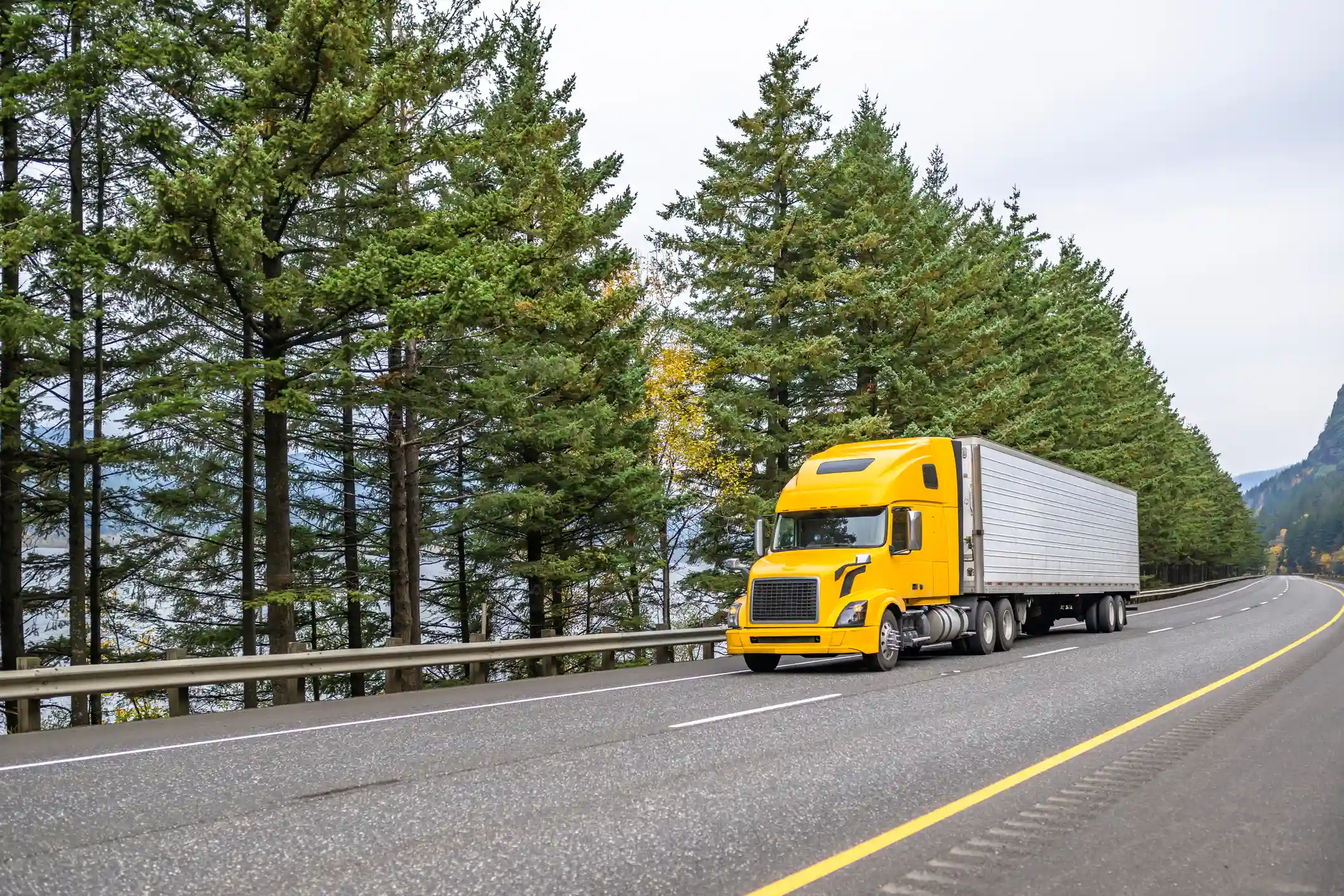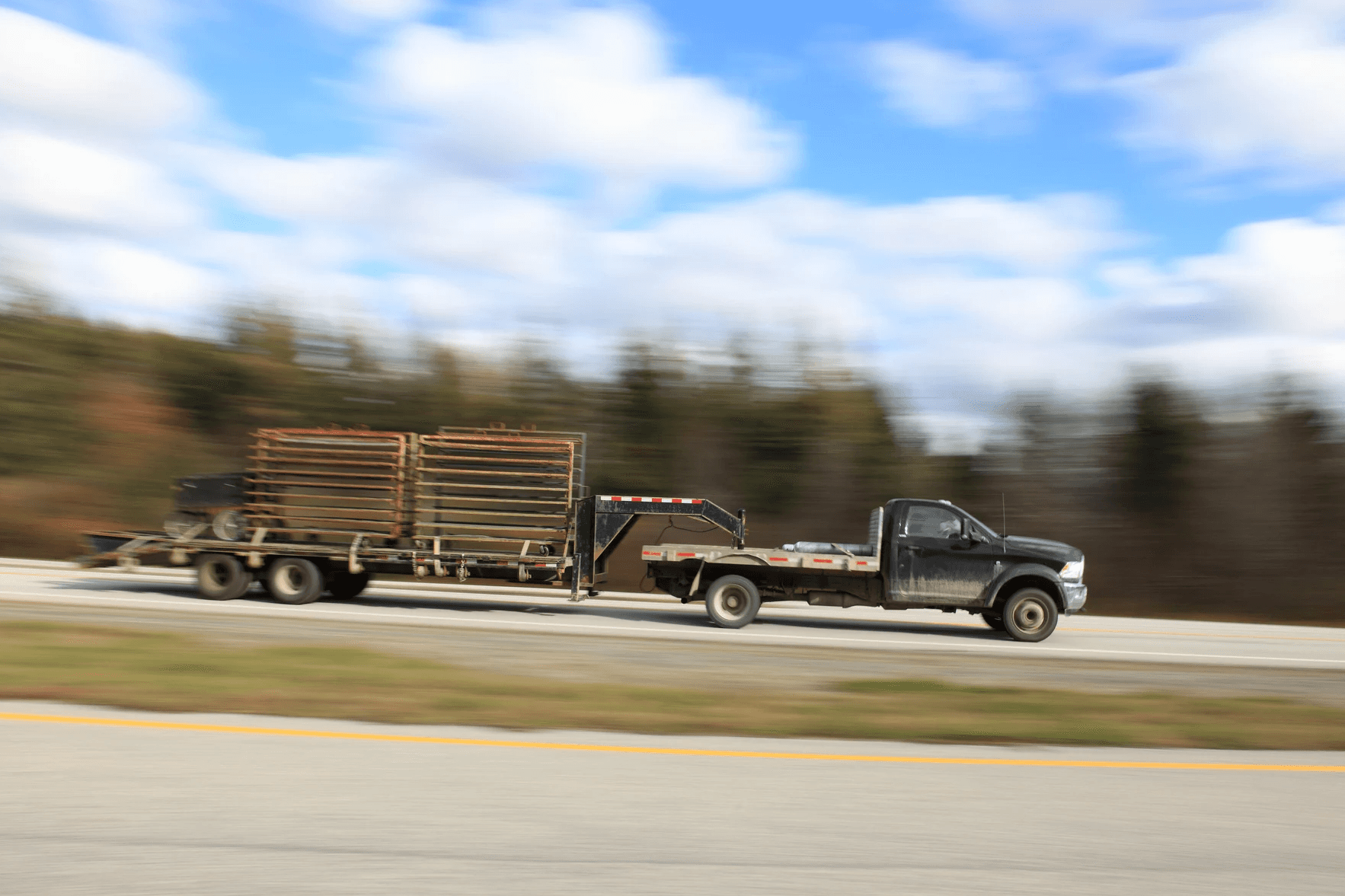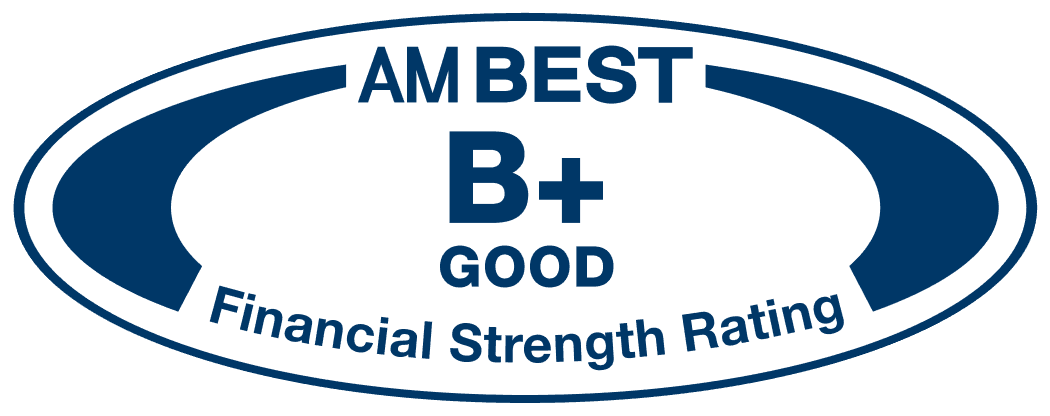Oct 13, 2025
18-Wheeler Commercial Auto Liability Insurance: Coverage, Compliance, and Cost Factors
Explore 18-wheeler insurance essentials—from liability coverage and FMCSA compliance to cost factors that shape premiums for safe, compliant trucking operations.


Large commercial trucks—also called 18-wheelers or big rigs—form the backbone of freight movement across the United States. Each day, they haul millions of tons of goods across state lines. But with their significant size and operating weight, accidents involving these vehicles may cause severe damage and costly legal exposure. Comprehensive insurance for 18-wheeler trucks, particularly liability coverage, plays a decisive role in maintaining both compliance and business continuity.
What 18-Wheeler Insurance Covers
The foundation of 18-wheeler insurance is commercial auto liability coverage. This policy pays for bodily injury or property damage caused to others when a truck is at fault in the unfortunate event of an accident. Under Federal Motor Carrier Safety Administration (FMCSA) rules, interstate motor carriers must maintain liability limits of at least $750,000, and in many cases—such as when hauling hazardous materials—minimums rise to $1 million or more (FMCSA minimum insurance requirements).
Operating with liability limits under the required minimums may lead to loss of operating authority or a temporary shutdown. Properly structured 18 wheeler truck insurance protects against lawsuits, regulatory fines, and the financial aftermath of severe collisions.
Coverage Types for 18-Wheelers
While auto liability insurance is required by law, many trucking operations enhance their protection with additional coverages that address common operational risks. STAR Mutual RRG offers:
Commercial Auto Liability: Protects businesses from significant financial loss if a truck is involved in an at-fault accident. It covers bodily injury, property damage, and related legal defense costs.
Personal Injury Protection (PIP): Provides medical expense coverage for the driver and passengers of a commercial vehicle, regardless of fault.
Uninsured & Underinsured Motorist: Covers bodily injury and property damage when another driver lacks sufficient insurance or in the event of a hit-and-run.
Physical Damage: Available through a program facilitated by Reliable Transportation Association, this coverage protects the insured vehicle itself, covering repair or replacement costs resulting from collisions, theft, or certain natural disasters.
Taken together, these coverages strengthen a fleet’s ability to manage liability and vehicle-specific risks inherent in commercial trucking.
FMCSA Compliance and Proof of Coverage
FMCSA requires every active carrier to maintain valid proof of financial responsibility. Insurers submit this verification through Form MCS-90, an endorsement confirming that the policy meets or exceeds federal liability minimums.
Failure to keep valid insurance filings may lead to fines, authority suspension, or an immediate out-of-service order. FMCSA and other regulatory authorities, such as state transportation agencies, closely monitor insurance compliance and may revoke operating authority until proper documentation is restored.
Trucking businesses must also keep proof of insurance in each vehicle and ensure that renewals are processed on time. Even a brief lapse in coverage can interrupt operations, trigger reinstatement costs, and, for fleets with scheduled freight, result in significant revenue loss.
Cost Factors: What Determines 18-Wheeler Insurance Premiums
The cost of 18-wheeler insurance varies widely as each trucking business presents a unique risk profile. Industry data show the average cost of 18 wheeler insurance ranges between $8,000 and $15,000 per truck for liability coverage, though total expenses may exceed $100,000 for larger fleets. Several key factors shape these costs:
Driving History: Accident records, moving violations, and CSA (Compliance, Safety, Accountability) scores influence underwriting risk.
Cargo Type: High-value or hazardous materials often carry elevated insurance requirements and premiums.
Safety Track Record: Fewer claims and proven loss control programs help maintain lower long-term costs.
For a more detailed look at pricing variables and market trends, see How Much Is Commercial Truck Insurance: Key Factors That Impact Your Premium.
Achieving Financial Security
Liability insurance does more than satisfy regulatory requirements—it forms the foundation for a trucking company’s financial strength. When large losses occur, a comprehensive 18 wheeler insurance coverage ensures that recovery costs don’t drain operating funds. Insurers evaluate not only accident history but also the insured’s approach to safety, risk management, and compliance—factors that can directly influence premium trends and renewal terms.
For some fleets, Risk Retention Groups (RRGs) offer a more engaged and cost-efficient insurance structure. As RRGs are built around industry expertise, they may provide more stable pricing, tailored underwriting, and a clearer connection between loss performance and cost control. Further insight into how this model supports long-term operational efficiency can be found in Risk Retention Groups: Benefits for Trucking Businesses.
Conclusion
Insurance for 18 wheeler trucks is more than a regulatory requirement—it is a strategic safeguard for financial stability. Liability coverage forms the legal foundation, but well-managed fleets that invest in maintenance, data-driven safety programs, and continuous compliance often benefit from lower premiums and stronger protection.
In a market where claim severity continues to rise and nuclear verdicts reshape liability expectations, aligning 18 wheeler truck insurance coverage with operational risk remains essential for every trucking enterprise on the road.
STAR Mutual RRG provides commercial auto liability coverage for 18-wheelers across multiple states, with a focus on safety, compliance, and long-term protection.
Large commercial trucks—also called 18-wheelers or big rigs—form the backbone of freight movement across the United States. Each day, they haul millions of tons of goods across state lines. But with their significant size and operating weight, accidents involving these vehicles may cause severe damage and costly legal exposure. Comprehensive insurance for 18-wheeler trucks, particularly liability coverage, plays a decisive role in maintaining both compliance and business continuity.
What 18-Wheeler Insurance Covers
The foundation of 18-wheeler insurance is commercial auto liability coverage. This policy pays for bodily injury or property damage caused to others when a truck is at fault in the unfortunate event of an accident. Under Federal Motor Carrier Safety Administration (FMCSA) rules, interstate motor carriers must maintain liability limits of at least $750,000, and in many cases—such as when hauling hazardous materials—minimums rise to $1 million or more (FMCSA minimum insurance requirements).
Operating with liability limits under the required minimums may lead to loss of operating authority or a temporary shutdown. Properly structured 18 wheeler truck insurance protects against lawsuits, regulatory fines, and the financial aftermath of severe collisions.
Coverage Types for 18-Wheelers
While auto liability insurance is required by law, many trucking operations enhance their protection with additional coverages that address common operational risks. STAR Mutual RRG offers:
Commercial Auto Liability: Protects businesses from significant financial loss if a truck is involved in an at-fault accident. It covers bodily injury, property damage, and related legal defense costs.
Personal Injury Protection (PIP): Provides medical expense coverage for the driver and passengers of a commercial vehicle, regardless of fault.
Uninsured & Underinsured Motorist: Covers bodily injury and property damage when another driver lacks sufficient insurance or in the event of a hit-and-run.
Physical Damage: Available through a program facilitated by Reliable Transportation Association, this coverage protects the insured vehicle itself, covering repair or replacement costs resulting from collisions, theft, or certain natural disasters.
Taken together, these coverages strengthen a fleet’s ability to manage liability and vehicle-specific risks inherent in commercial trucking.
FMCSA Compliance and Proof of Coverage
FMCSA requires every active carrier to maintain valid proof of financial responsibility. Insurers submit this verification through Form MCS-90, an endorsement confirming that the policy meets or exceeds federal liability minimums.
Failure to keep valid insurance filings may lead to fines, authority suspension, or an immediate out-of-service order. FMCSA and other regulatory authorities, such as state transportation agencies, closely monitor insurance compliance and may revoke operating authority until proper documentation is restored.
Trucking businesses must also keep proof of insurance in each vehicle and ensure that renewals are processed on time. Even a brief lapse in coverage can interrupt operations, trigger reinstatement costs, and, for fleets with scheduled freight, result in significant revenue loss.
Cost Factors: What Determines 18-Wheeler Insurance Premiums
The cost of 18-wheeler insurance varies widely as each trucking business presents a unique risk profile. Industry data show the average cost of 18 wheeler insurance ranges between $8,000 and $15,000 per truck for liability coverage, though total expenses may exceed $100,000 for larger fleets. Several key factors shape these costs:
Driving History: Accident records, moving violations, and CSA (Compliance, Safety, Accountability) scores influence underwriting risk.
Cargo Type: High-value or hazardous materials often carry elevated insurance requirements and premiums.
Safety Track Record: Fewer claims and proven loss control programs help maintain lower long-term costs.
For a more detailed look at pricing variables and market trends, see How Much Is Commercial Truck Insurance: Key Factors That Impact Your Premium.
Achieving Financial Security
Liability insurance does more than satisfy regulatory requirements—it forms the foundation for a trucking company’s financial strength. When large losses occur, a comprehensive 18 wheeler insurance coverage ensures that recovery costs don’t drain operating funds. Insurers evaluate not only accident history but also the insured’s approach to safety, risk management, and compliance—factors that can directly influence premium trends and renewal terms.
For some fleets, Risk Retention Groups (RRGs) offer a more engaged and cost-efficient insurance structure. As RRGs are built around industry expertise, they may provide more stable pricing, tailored underwriting, and a clearer connection between loss performance and cost control. Further insight into how this model supports long-term operational efficiency can be found in Risk Retention Groups: Benefits for Trucking Businesses.
Conclusion
Insurance for 18 wheeler trucks is more than a regulatory requirement—it is a strategic safeguard for financial stability. Liability coverage forms the legal foundation, but well-managed fleets that invest in maintenance, data-driven safety programs, and continuous compliance often benefit from lower premiums and stronger protection.
In a market where claim severity continues to rise and nuclear verdicts reshape liability expectations, aligning 18 wheeler truck insurance coverage with operational risk remains essential for every trucking enterprise on the road.
STAR Mutual RRG provides commercial auto liability coverage for 18-wheelers across multiple states, with a focus on safety, compliance, and long-term protection.
Contents
Stay up-to-date
Related Post
Become a STAR Agent
Become a STAR Agent
Get access to unparalleled technology-based service to quote and bind your clients in minutes.
Get appointed
Get appointed
STAR Mutual Risk Retention Group (“STAR”) offers commercial auto liability insurance to the members of Reliable Transportation Association (“RTA”), looking for accessible and reliable coverage.
Get in Touch
Contact
855-5MY-STAR (855-569-7827)
STAR Mutual RRG
PO Box 51414, Philadelphia
PA 19115
General inquiries:
Agent inquiries:
Claim inquiries:
The information presented on this website is for general informational purposes only and does not constitute legal, regulatory, or business advice. Readers are encouraged to consult with qualified legal or insurance professionals regarding questions specific to their circumstances.
The content is provided for general informational purposes only and does not constitute an offer to sell, or a solicitation of an offer to buy, insurance in any jurisdiction where STAR Mutual RRG is not licensed or registered. Any description of coverage is general and subject to the terms, conditions, and exclusions of the actual policy.
STAR Mutual Risk Retention Group (“STAR”) offers commercial auto liability insurance to the members of Reliable Transportation Association (“RTA”), looking for accessible and reliable coverage.
Get in Touch
Contact
855-5MY-STAR (855-569-7827)
STAR Mutual RRG
PO Box 51414, Philadelphia
PA 19115
General inquiries:
Agent inquiries:
Claim inquiries:
The information presented on this website is for general informational purposes only and does not constitute legal, regulatory, or business advice. Readers are encouraged to consult with qualified legal or insurance professionals regarding questions specific to their circumstances.
The content is provided for general informational purposes only and does not constitute an offer to sell, or a solicitation of an offer to buy, insurance in any jurisdiction where STAR Mutual RRG is not licensed or registered. Any description of coverage is general and subject to the terms, conditions, and exclusions of the actual policy.
STAR Mutual Risk Retention Group (“STAR”) offers commercial auto liability insurance to the members of Reliable Transportation Association (“RTA”), looking for accessible and reliable coverage.
Get in Touch
Contact
855-5MY-STAR (855-569-7827)
STAR Mutual RRG
PO Box 51414, Philadelphia
PA 19115
General inquiries:
Agent inquiries:
Claim inquiries:
The information presented on this website is for general informational purposes only and does not constitute legal, regulatory, or business advice. Readers are encouraged to consult with qualified legal or insurance professionals regarding questions specific to their circumstances.
The content is provided for general informational purposes only and does not constitute an offer to sell, or a solicitation of an offer to buy, insurance in any jurisdiction where STAR Mutual RRG is not licensed or registered. Any description of coverage is general and subject to the terms, conditions, and exclusions of the actual policy.
© 2026 - STAR Mutual RRG. All rights reserved.




